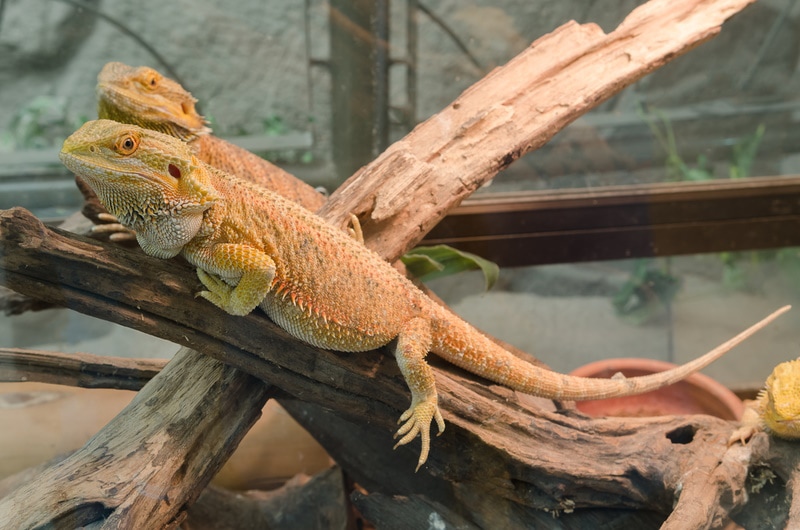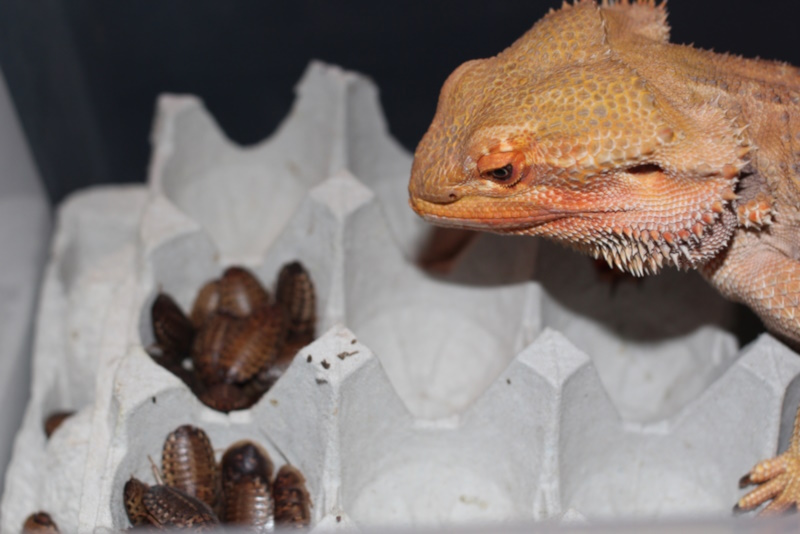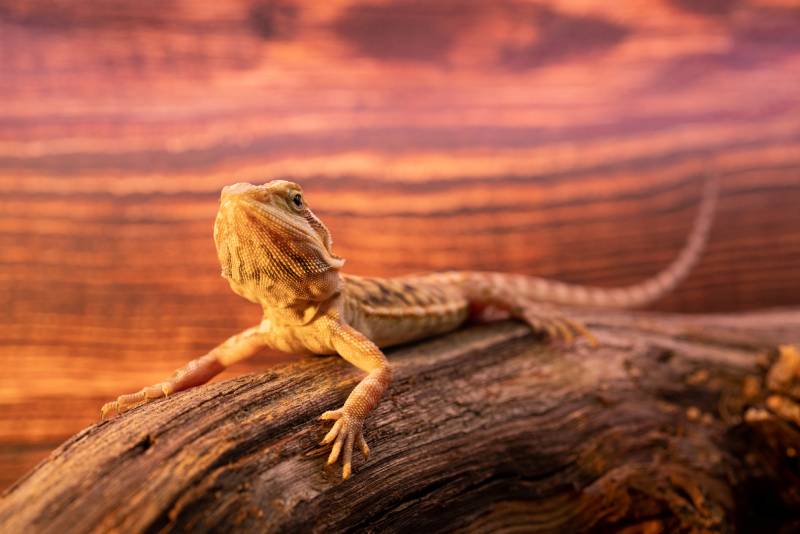Can Bearded Dragons Eat Carrots? Vet-Reviewed Nutritional Facts & FAQ
Updated on
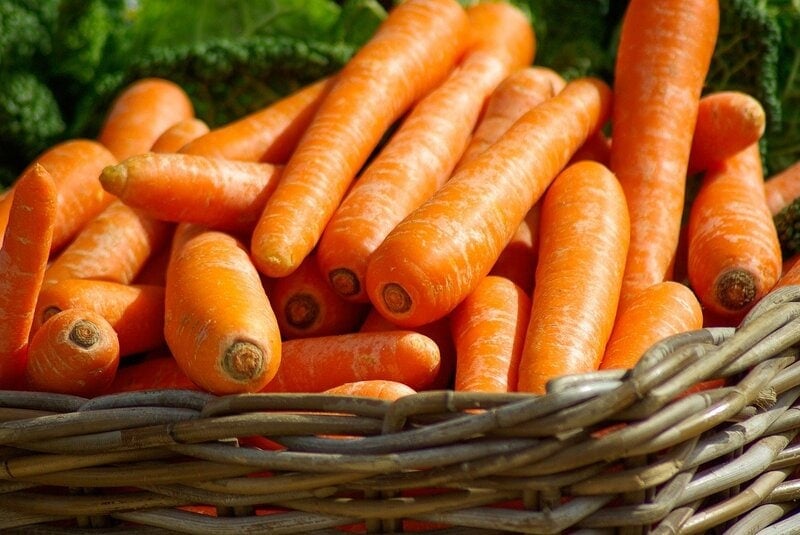
Bearded dragons are a popular choice for someone looking for an exotic pet. These reptiles are easy to care for, with a docile nature to boot. Lizards have diverse diets, typically dependent on their habitat and food availability. This species is no exception. It lives in the semi-arid shrublands and forests of central and eastern Australia 1. The scarcity of foodstuffs makes it an opportunistic omnivore.
The bearded dragon feeds on various items, from plants to insects to small rodents. While they wouldn’t encounter foods like carrots often in the wild, they can enjoy them in captivity. They are safe for your pet to eat, but with some caveats.
Nutritional Value of Carrots
A 100-gram serving of raw carrots has only 41 calories, of which 88.3% is water. While they don’t have much protein or fat, they are a rich source of several essential nutrients, such as vitamin A, potassium, and niacin. They also provide a healthy source of fiber and carbohydrates. It’s worth noting that cooked carrots can reduce the nutritional value of this food considerably.
Therefore, we suggest offering your pet the raw vegetable grated or cut into small enough pieces to avoid gastrointestinal blockages.
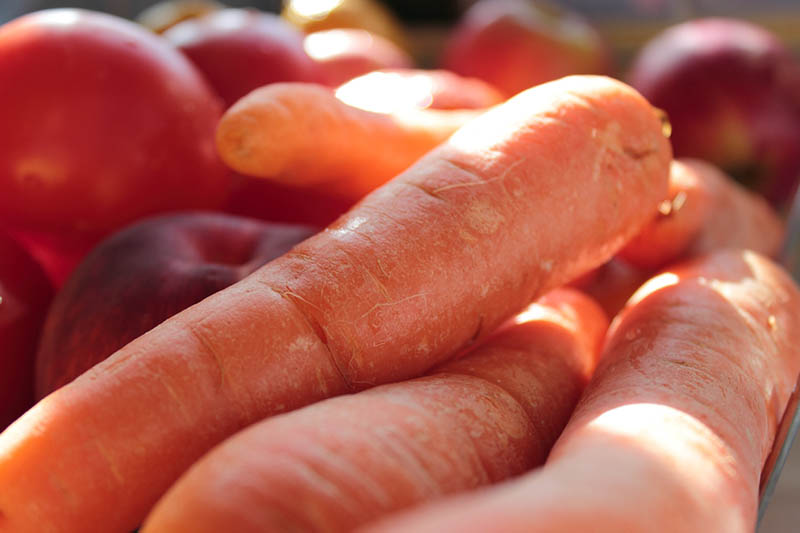
Guidance for Offering Your Pet Carrots
We mentioned that the bearded dragon is an omnivore. One study looked at the diet of their wild counterparts, which may provide additional guidance for keeping these lizards as pets 2. An examination of the stomach contents of free-roaming animals found that 61% of the dry matter consisted of insects, with plants making up 16% of dry matter. Protein accounted for 41–50%.
The recommended protein intake for these lizards is 20–25% 3. The content in a 100-gram serving of carrots is only 0.93 grams.
Calcium
Bearded dragons need adequate calcium for bone development and their overall health. Carrots contain similar amounts of calcium to phosphorus, which is safer than foods with significantly more phosphorus compared to calcium, as phosphorus binds with calcium, preventing it from being absorbed. However, carrots don’t contain enough calcium to make them a staple vegetable choice for your beardie. Bearded dragons are susceptible to metabolic bone disease (MBD) if they don’t get adequate amounts of calcium, UV light and/or vitamin D.
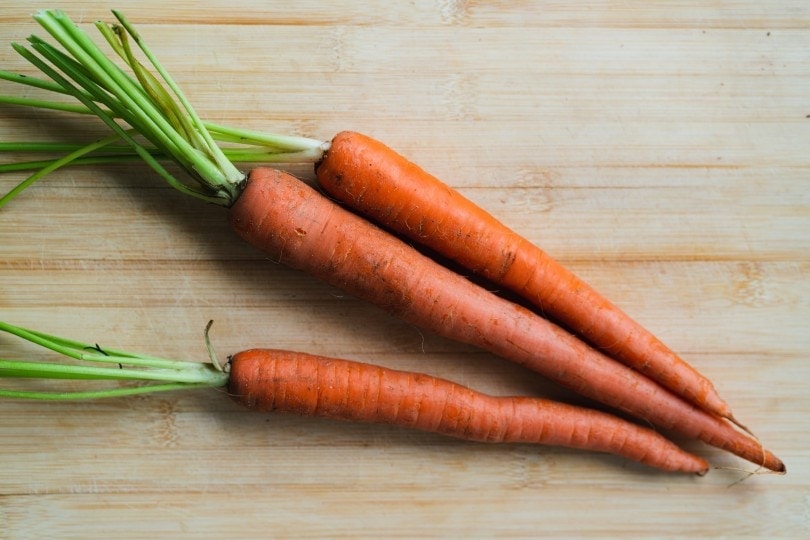
Vitamin A
Carrots are one of the best sources of vitamin A. It is a fat-soluble nutrient that is stored in this tissue in the body. Vitamin A is needed for a healthy immune system, skin and good vision. While it’s rare, feeding too many carrots can put your pet at risk for vitamin A toxicity. It’s a case where too much of a good thing is bad. It probably won’t be an issue unless you’re giving your lizard a dietary supplement. Telltale signs include lethargy, a loss of appetite as well as skin signs such as dry, flaky skin. Always consult with your vet about suitable supplements for your beardie.
Oxalic Acid
The other caveat with carrots concerns their oxalic acid content. This chemical can bind with calcium forming calcium oxalate. It can lower the amount of available calcium that the animal can use for its physiological needs. That brings MBD back into the picture.
A 100-gram serving of carrots contains 0.5 grams of oxalic acid. That may not sound like a lot, but you must take it into context with the reptile’s overall diet and the frequency in which you give your bearded dragon foods high in this chemical compound.
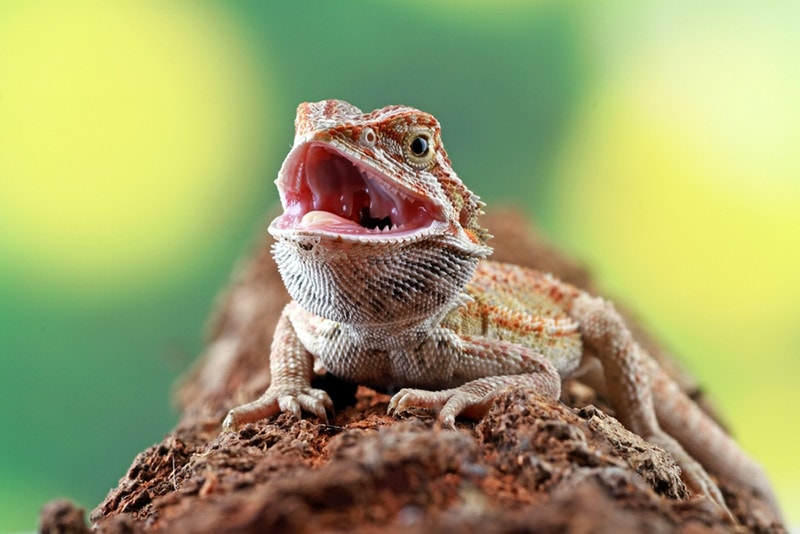
The Ideal Diet for a Bearded Dragon
Being an omnivore suggests a diverse diet, which is ideally what your bearded dragon should get.
Young animals need more animal matter in their diet, but when adults plant based foods should account for at least 50% of their overall diet. The majority of this plant material should be leafy greens with a smaller amount consisting of vegetables such as carrots and only 10% being fruits.
Some other plant based foods that are safe and nutritious for bearded dragons include the following:
- Collard greens
- Mustard greens
- Dandelion
- Peas
- Asparagus
- Cactus
- Strawberries
- Apricots
- Raspberries
Final Thoughts
Bearded dragons make great pets for the experienced enthusiast or someone just getting started with exotic animals. A nutritious, varied diet is imperative for keeping these reptiles healthy. Reach out to your vet for advice and support in formulating the right diet plan to keep your pet healthy and happy. Carrots and carrot tops are a safe option to feed your beardie, but they should not be a diet staple and can be offered approximately once or twice a week.
Featured Image Credit: jackmac34, Pixabay


